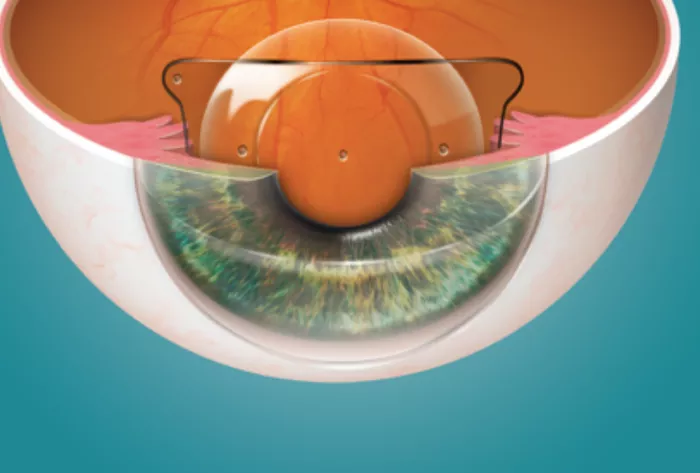Laser eye surgery, particularly LASIK (Laser-Assisted In Situ Keratomileusis), is a popular procedure designed to correct vision issues such as myopia, hyperopia, and astigmatism. While it can provide life-changing results for many, it’s not suitable for everyone. Various factors must be considered to determine candidacy for this procedure. Below, we explore seven reasons why you might not be suitable for laser eye surgery.
1. Unstable Vision
Frequent Changes in Prescription
One of the primary requirements for laser eye surgery is stable vision. If your prescription changes frequently, it indicates that your eyes are still evolving. Performing surgery on unstable eyes can lead to suboptimal results and may necessitate further corrective procedures.
Age-Related Stability
Vision typically stabilizes after the age of 18. However, some individuals experience changes in their prescription well into their twenties. Your ophthalmologist will review your eye health history to ensure your vision has remained stable for at least one to two years before considering surgery.
2. Thin Corneas
Corneal Thickness Importance
The cornea’s thickness plays a crucial role in the success of laser eye surgery. During the procedure, a portion of the corneal tissue is reshaped to correct vision. If your corneas are too thin, removing additional tissue can weaken the structure, increasing the risk of complications.
Measuring Corneal Thickness
Your ophthalmologist will measure the thickness of your corneas using a device called a pachymeter. If your corneas do not meet the minimum thickness requirements, alternative procedures like PRK (Photorefractive Keratectomy) might be recommended.
See Also: 6 Best Eye Surgeries For Treating Astigmatism
3. Severe Dry Eyes
Impact on Recovery
Dry eye syndrome can be exacerbated by laser eye surgery. If you already suffer from severe dry eyes, the procedure can worsen your condition, leading to discomfort, delayed healing, and even visual disturbances.
Pre-Surgical Evaluation
Your eye specialist will perform tests to assess the severity of your dry eye condition. They may recommend treating and stabilizing your dry eyes before considering you for laser surgery.
4. High Prescription Levels
Limitations of Laser Correction
Laser eye surgery has limitations regarding the degree of refractive error it can correct. Extremely high levels of myopia, hyperopia, or astigmatism may require more tissue removal than is safe or feasible.
Risk of Under- or Over-Correction
High prescription levels increase the risk of under- or over-correction, where the laser fails to achieve the desired vision correction. This can result in residual refractive error, necessitating additional procedures.
5. Corneal Diseases or Scarring
Conditions Affecting Suitability
Corneal diseases such as keratoconus, a progressive thinning of the cornea, or significant corneal scarring from injury or infection, can disqualify you from laser eye surgery. These conditions compromise the structural integrity and clarity of the cornea.
Comprehensive Eye Examination
A detailed eye examination will identify any corneal abnormalities. If you have such conditions, your ophthalmologist may suggest alternative treatments or refer you to a specialist in corneal disorders.
6. Autoimmune Disorders
Impaired Healing Response
Autoimmune disorders like rheumatoid arthritis, lupus, or Sjögren’s syndrome can affect your body’s healing response. Since laser eye surgery involves creating a flap in the cornea and reshaping the underlying tissue, an impaired healing response can lead to complications.
Pre-Surgical Consultation
It is essential to disclose any autoimmune conditions to your eye surgeon. They will evaluate the risks and may advise against surgery if the likelihood of poor healing or adverse reactions is high.
7. Pregnancy and Breastfeeding
Hormonal Changes
Pregnancy and breastfeeding can cause hormonal fluctuations that affect the shape and thickness of your cornea. These changes can alter your prescription, making it unreliable for surgical correction.
Timing of Surgery
To ensure the most accurate and stable results, it is recommended to wait until several months after breastfeeding has ended before undergoing laser eye surgery. This allows your hormones to stabilize and your prescription to return to its pre-pregnancy state.
Conclusion
Laser eye surgery can offer significant improvements in vision and quality of life for many individuals. However, it is not suitable for everyone. Factors such as unstable vision, thin corneas, severe dry eyes, high prescription levels, corneal diseases or scarring, autoimmune disorders, and hormonal changes due to pregnancy and breastfeeding must be carefully considered. A thorough evaluation by an experienced ophthalmologist will help determine whether laser eye surgery is the right choice for you. If you are not a candidate, alternative vision correction options can be explored to meet your needs.
Related topics:

